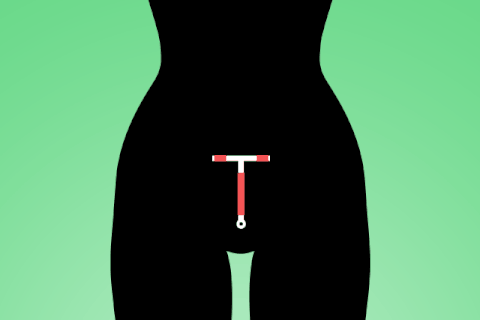Sometimes we just don’t practice safe sex. Luckily, options for the morning after exist. Mainstream pills, such as the Plan B pill, have become increasingly popular ways to prevent pregnancy. With all the hormones and chemicals behind contraceptives, it sounds all very science-y and confusing. Web MD doesn’t always have all the answers. You need to understand what emergency contraceptives do to the body, but it’s even more pressing to know about some of the things the pill does or doesn’t do to protect you.
Read on for everything you need to know about the plan b pill.
1. What did people do before Plan B was introduced in the medical market?

Some of us may think that Plan B was the first morning after pill regime introduced in the U.S. However women had access to emergency contraceptives way before Plan B was around. “For many years a high dose of oral contraceptive called the Yuzpe protocol was used. This involved taking two pills, one right after unprotected sex and then another 12 hours later,” said New Jersey Shore Medial Center obstetrician-gynecologist Dr. Mark DeMasi. The pills taken on this regimen include a combination of estrogen, progestogen and hormones. However, Plan B and other emergency contraception only require one pill, which contain less hormones and do the same job.
2. How will I feel after I take a morning after pill?

Just like other things in life, some people have a reaction while others don’t. “Nausea and vomiting are common, and very rarely a blood clot can happen. However the chances of a major complication like a blood clot is one in a quarter million, the rate is fairly low,” said Dr. DeMasi. Some might also experience abdominal pain, fatigue and even menstrual changes. “I felt horribly nauseous the first day and it delayed my period which was terrifying since I was already scared I would get pregnant,” said a student at American University. So don’t panic if you take the pill and the next day you feel a bit off and have issues with your upcoming menstrual cycle. If you think you may be having a severe reaction to the medication, always trust your gyno or other health professionals in your life. They know what they’re doing and they’re always here to help without judgment.
3. What are some common misconceptions about Plan B and the morning after pill?

“I always heard it was an abortion pill, and felt shamed when I had to buy it,” said an American University student. But keep in mind that they’re not the same thing. The main difference between emergency contraception pills and the abortion pill, Mifeprex, is simple. Pills like Plan B delay ovulation, but will NOT end a pregnancy, because the hormones are incapable of doing so. On a different note, don’t believe everything you read. Like condoms, Plan B is not 100 percent effective.
4. How long can I take Plan B before it will not work?

It is best to take the pill as soon as possible, since it’s most effective when taken within the first 24 hours of unprotected sex. However, Plan B is still effective within a 72-hour time window after having unprotected sex. Although it’s not 100 percent effective, it’s about 89 to 95 percent effective when taken within 72 hours. Your best bet is to take the pill right away, but sometimes you can’t get to the closest Walgreens or CVS moments after having intercourse with a partner. Keep in mind that you can take other emergency contraception pills like Ella up to five days after having unprotected sex. As gross and scary as it sounds, sperm can live up to five days within a female reproductive tract— so Ella may be a better option to rid those pesky specimen.
5. Does Plan B only protect me against an unwanted pregnancy?

To give you the quick answer, yes. “This type of pill does not protect women from contracting sexually transmitted diseases,” said Dr. DeMasi. It may seem like a no brainer to some, but you’d be surprised to find out how many truly don’t know this. Side note: Getting routinely checked for STIs is very important to maintain lifelong health. A lot of people may not realize that STIs do not cause symptoms for women but can have lasting effects on the female reproductive cycle. According to Dr. DeMasi, Pelvic Inflammatory Disease causes female infertility, and can be caused by STDs such as chlamydia or gonnorrhea.
6. Is Plan B only sold in the U.S.? Can I get it when studying abroad?

Surprisingly enough, a lot of countries overseas supply morning after pills and Plan B. This is a nice safety net for when you’re abroad and jet lag may cause you to miss your birth control pill for a few days. Even better? “Plan B is typically $50 in the states but only seven euros in Belgium,” said a student at AU. Of course this doesn’t mean you should have as much unprotected sex as you want abroad, but it’s a relief to know other countries have such medication. “I was surprised but VERY thankful I was able to buy it in Australia,” said another AU student. However, beware of the fact that other countries may have different dosage of these pills. Always make sure to consult a professional or phone a home doctor to ensure your protection.
7. How many times can I take Plan B?

The myth goes that taking Plan B ruins your reproductive system. Although it’s not ideal to take Plan B often, it is okay to take more than once in a lifetime. But Plan B is not the same as a daily hormonal birth control pill. In every Sex Ed class you have taken, they probably told you all about contraceptives. What they also need to say is that you shouldn’t use Plan B as a regular form of contraception. You’ll find much healthier and economical options out there that help prevent pregnancy. Most university health centers give out free condoms like candy, so don’t hesitate to stock up.
Think of Plan B as exactly as what its name is— a backup plan. “They call it Plan B for a reason, you should always have a plan A. Today there are newer generations of daily birth control pills that much are safer with lower doses of hormones,” said Dr. DeMasi. Getting on a daily hormonal birth control pill is a great choice for sexually active young women. According to Planned Parenthood, daily birth control pills are about 91 percent effective. Beyond that, your insurance will probably cover most birth control.
8. Who can purchase Plan B?

Pretty much anyone can purchase Plan B. This is a good thing considering no one enjoys walking into CVS to buy Plan B while you think everyone around you is judging. If you feel that upset or uncomfortable, have a close friend do it. “My boyfriend actually always bought me Plan B, I actually never bought it,” said a student at AU.
Also, you don’t need an ID or prescription. You or a friend can just walk in, get the stuff, pay for it and walk out. Although many of us may feel ashamed or uncomfortable buying the emergency contraceptive, you should know that there is no shame in doing whatever you want with your body. If you can’t find a friend to do it and you really can’t bear the thought of getting it yourself, delivery service apps have your back. “You can even get Plan B on the Go Puff app,” said one AU student.
9. What is the average price of Plan B or other morning after pill?

The current emergency contraceptives on the market are not necessarily cheap. The average cost of Plan B is $48. For the most part, however, emergency contraceptives in the U.S. can range from $35 to $60. That sounds expensive, doesn’t it? But keep in mind emergency contraceptives come at that price because of the increased levels of hormones in the pill.
10. What are copper IUDs and how are they considered a form of emergency contraceptive?

“A copper IUD can be inserted after unprotected sex. These IUDs are about 70 percent effective,” said Dr. DeMasi. “IUDs used to have a bad name and were not being used for a long time. This was due to some IUDs causing women to develop pelvic inflammatory disease which caused them to become sterile.” But a copper IUD can protect you from pregnancy for at least nine years and can be inserted a few days after having unprotected sex. So, what exactly does this contraption do? It prevents your egg from implanting on the uterine wall. This type of IUD has funky copper coils that disrupt the sperm’s movement before they can fertilize and attach.
IUDs may serve as a good option for those who do not fare well with hormonal birth control or the high dosage of hormones in Plan B. However, it is also important to note that IUDs may not be a good option for those with more than one sexual partner. According to Dr. DeMasi IUDs catch a lot of bacteria. And with more partners comes more risks for contracting STIs. “[PID] can be caused by normal vaginal flora and bacteria traveling up an IUD string, not just STDs like chlamydia and gonorrhea,” he said.
What It’s Really Like to Take Plan B in College
All quotes are from AU students. The names are withheld to protect their privacy.
“I was so surprised at the 72-hour window Plan B can be taken, I took it right away to be safe.”
“Someone once told me it was a scam and it won’t work if you don’t take it right away. I still took it and I only had cramps and light spotting.”
“I think Plan B is ridiculously expensive and not attainable to the average woman, especially considering the amount of sexually active young women in the U.S. I still took it but I was just so surprised at the price compared to the European price.”
“I broke out horribly from taking Plan B only once. I eventually did have to take it again but the second time it upset my stomach and nothing else.”
“I always had faith in a generic brand and that it was a fine pill to take. The generic brand is fine, I took the Take Action pill and it worked effectively.”



















